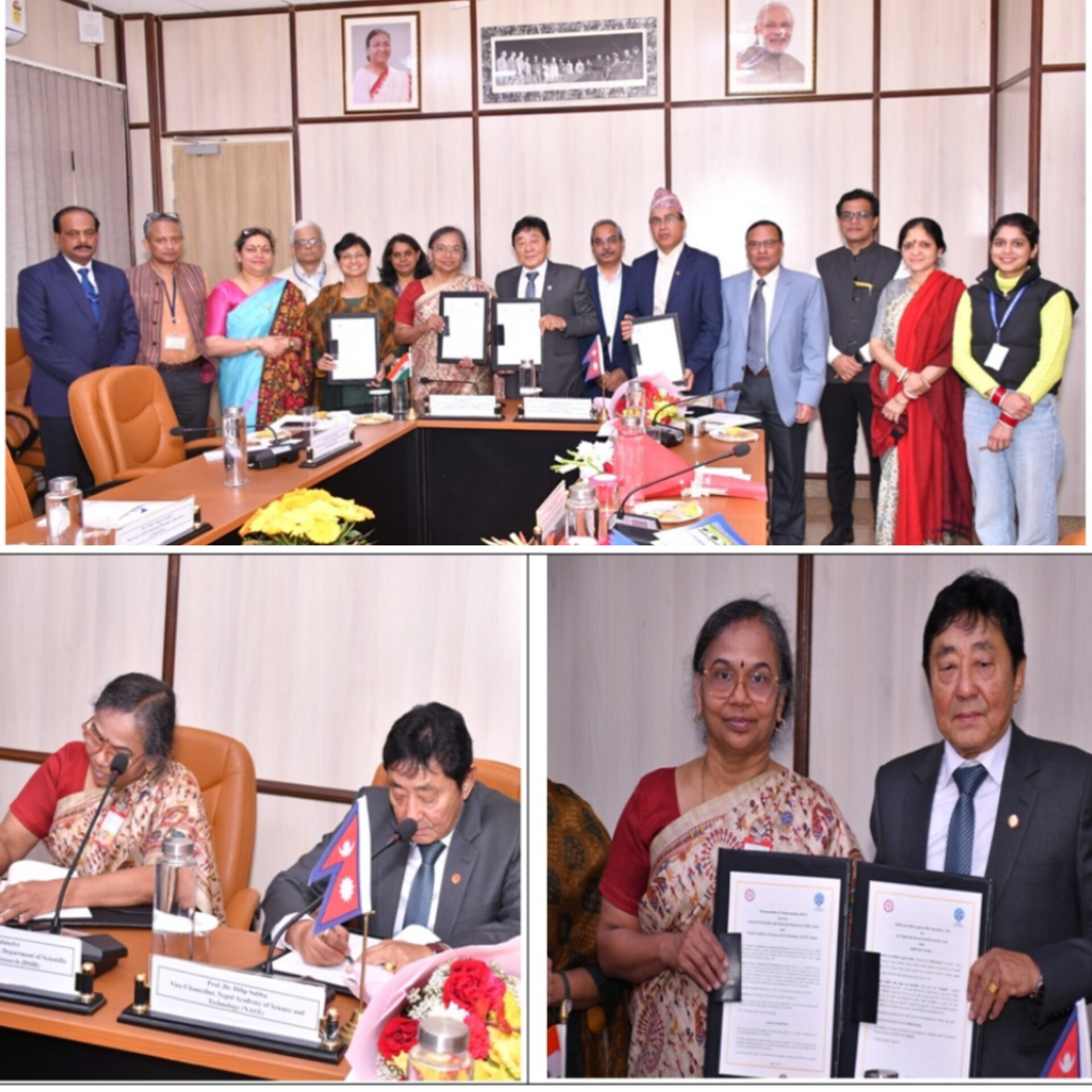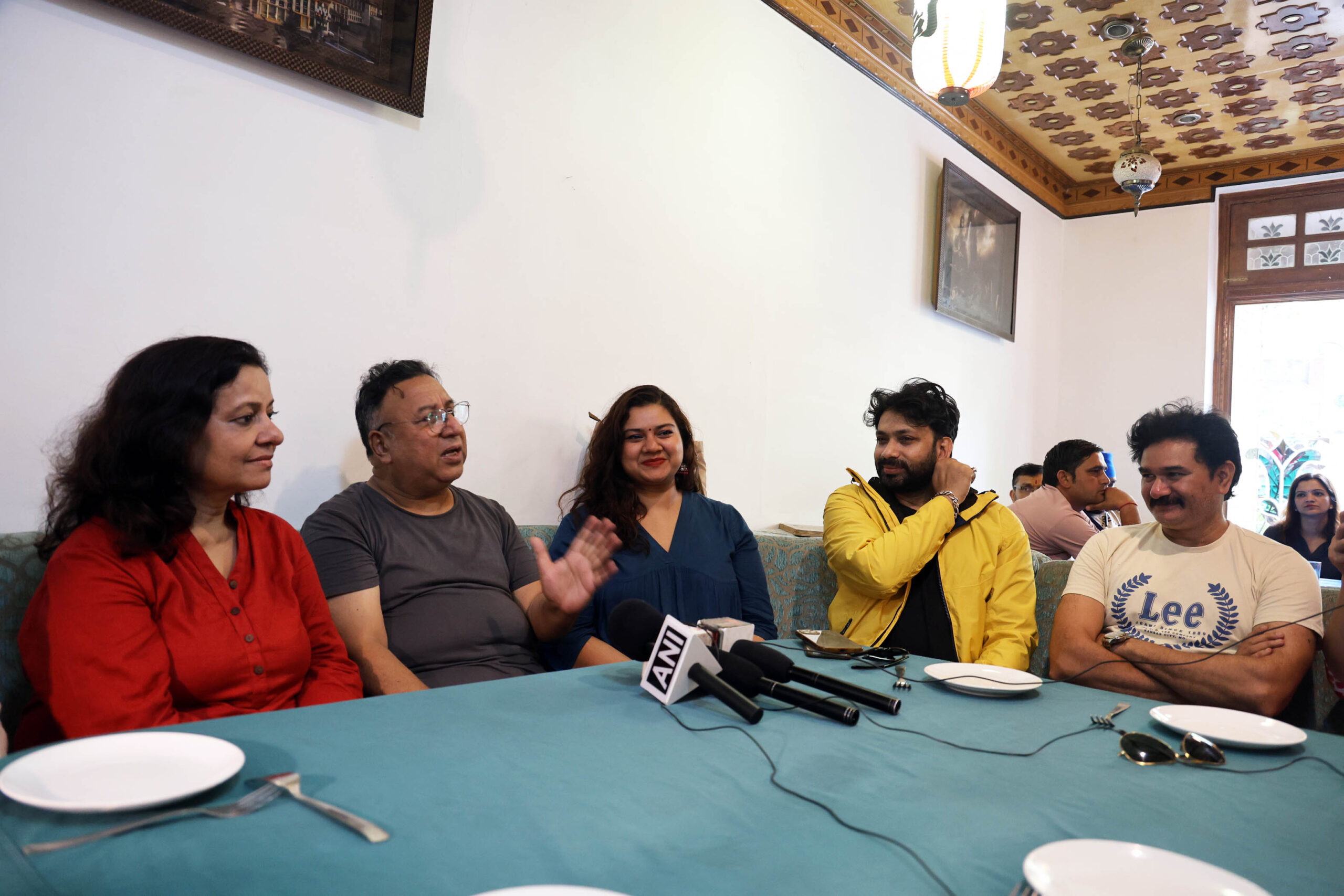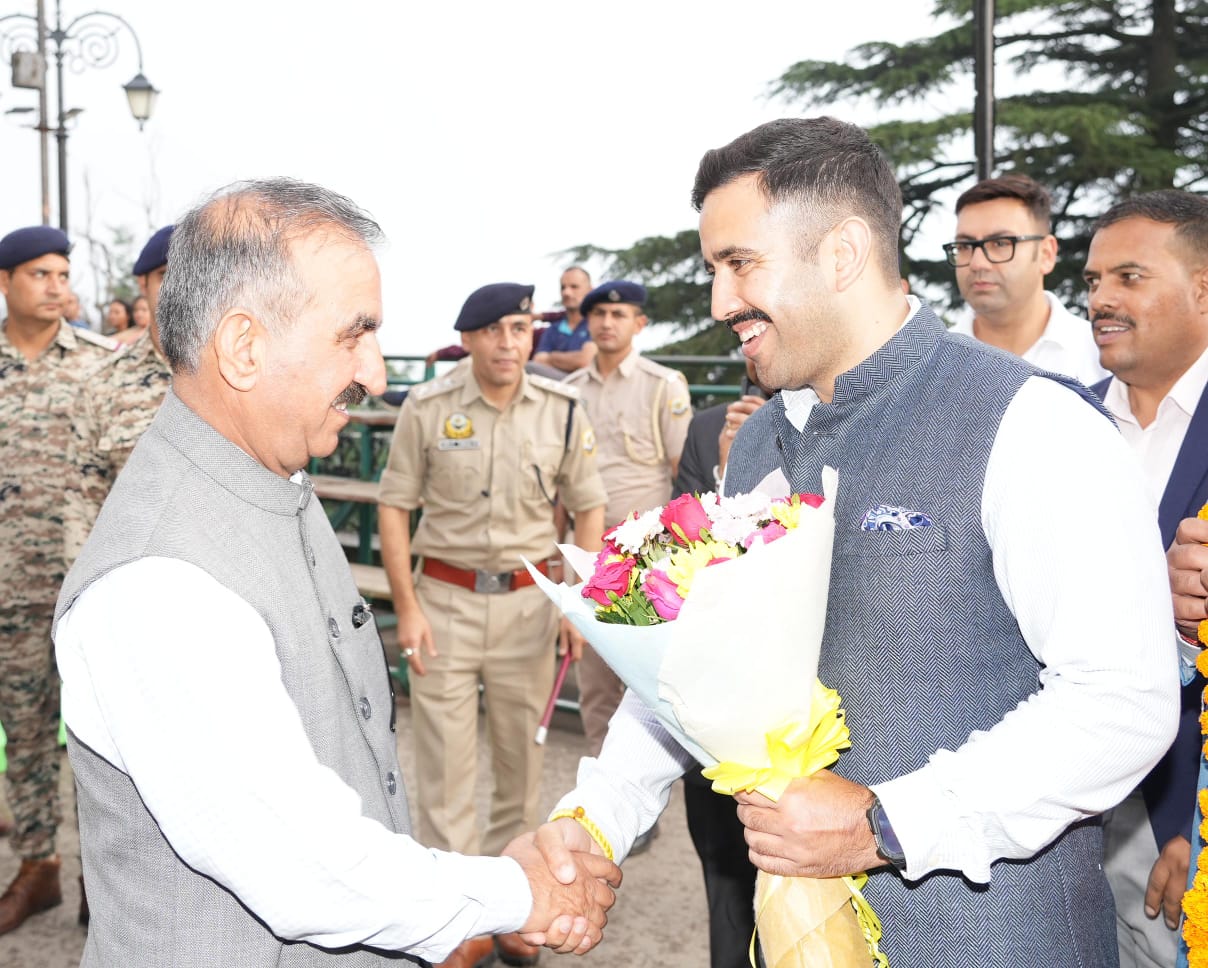India and Nepal Strengthen Science and Technology Ties with New MoU.
New Delhi:
In a major step towards deepening bilateral scientific and technological cooperation, India and Nepal have signed a Memorandum of Understanding (MoU) to bolster their collaboration in the field of science and technology (S&T). The agreement was formalized on 18th February 2025 at the Council of Scientific and Industrial Research-National Physical Laboratory (CSIR-NPL) in New Delhi, between the Council of Scientific and Industrial Research (CSIR) and the Nepal Academy of Science and Technology (NAST).
The MoU was signed by Dr. N. Kalaiselvi, Director General of CSIR, and Prof. Dr. Dilip Subba, Vice-Chancellor of NAST, and sets the stage for expanding the longstanding cooperation between the two institutions. CSIR and NAST have shared a history of collaboration dating back to 1994, when an agreement was first signed to promote joint research and technological development. This new agreement seeks to build on that foundation and reinvigorate the partnership, allowing both nations to explore new scientific frontiers together.
The renewed partnership will focus on a wide range of scientific disciplines, including biological sciences, food science and technology, water and environmental technologies, fuel and mining sciences, metallurgy, material sciences, nanotechnology, alternative energy, leather and footwear technologies, and drug discovery. The collaboration will be executed through various activities such as the exchange of scientific information, research materials, and experts, as well as the organization of joint seminars, workshops, and training programs. The MoU also allows for joint research projects, the use of each other’s major research facilities, and the establishment of technology partnerships.
During the signing ceremony, Dr. N. Kalaiselvi emphasized CSIR’s strong interest in strengthening its technology and capacity-building collaborations with Nepal, stressing that there is immense untapped potential for mutual cooperation. She called for swift action in implementing the MoU with a clear implementation plan to ensure the success of the partnership.
Prof. Dr. Dilip Subba, Vice-Chancellor of NAST, reaffirmed Nepal’s commitment to deepening scientific ties with India, noting that the MoU marks a significant milestone in the two countries’ S&T relationship. He proposed the creation of subject-specific working groups to streamline collaboration and ensure a structured approach to the partnership’s priority areas.
This new agreement represents a renewed commitment to fostering scientific progress, innovation, and economic growth through cooperation between India and Nepal. With the exchange of this MoU, the two nations are poised to leverage each other’s strengths, opening new avenues for joint research, knowledge exchange, and capacity building in science and technology. The partnership is set to play a crucial role in advancing both nations’ S&T capabilities and addressing global challenges through collaborative research and innovation.



